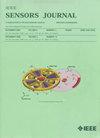基于变分贝叶斯的SINS/USBL组合导航系统最大相关熵自适应卡尔曼滤波
IF 4.3
2区 综合性期刊
Q1 ENGINEERING, ELECTRICAL & ELECTRONIC
引用次数: 0
摘要
捷联惯性导航系统(SINS)和超短基线(USBL) (SINS/USBL)集成系统是自主水下航行器(auv)极具发展前景的导航工具。深海测量常常包含未知的时变噪声和异常值。传统的卡尔曼滤波器鲁棒性和自适应能力有限,在实现高精度水下导航方面面临挑战。虽然鲁棒KF在大多数情况下可以有效地处理非高斯噪声,但在非平稳噪声条件下,其精度仍有较大损失。本文提出了一种将最大熵准则(MCC)与变分贝叶斯(VB)方法相结合的自适应鲁棒KF,以有效地减轻复杂噪声的影响。该方法采用VB方法估计测量噪声协方差,实现自适应,同时采用变核带宽MCC策略减轻异常值,增强鲁棒性。仿真和海上实验结果表明,该方法具有较好的自适应鲁棒估计精度。本文章由计算机程序翻译,如有差异,请以英文原文为准。
A Variational Bayesian-Based Maximum Correntropy Adaptive Kalman Filter for SINS/USBL Integrated Navigation System
The strap-down inertial navigation system (SINS) and ultrashort baseline (USBL) (SINS/USBL) integrated system are the highly promising tool for navigating the autonomous underwater vehicles (AUVs). The measurement in the deep sea often contains unknown, time-varying noise and outliers. The traditional Kalman filter (KF) may face challenges in achieving high-precision underwater navigation due to its limited robustness and adaptivity. Although the robust KF has been developed and can effectively handle non-Gaussian noises in most cases, it may still suffer a significant loss in accuracy under nonstationary noise conditions. This study presents an adaptive robust KF that integrates the maximum correntropy criterion (MCC) with the variational Bayesian (VB) method to effectively mitigate the effects of complex noise. The proposed method achieves adaptivity by employing the VB method to estimate measurement noise covariance while enhancing robustness by mitigating outliers using the variable kernel bandwidth MCC strategy. According to simulation and offshore experiments, the proposed method provides superior estimation accuracy compared to related adaptive and robust algorithms.
求助全文
通过发布文献求助,成功后即可免费获取论文全文。
去求助
来源期刊

IEEE Sensors Journal
工程技术-工程:电子与电气
CiteScore
7.70
自引率
14.00%
发文量
2058
审稿时长
5.2 months
期刊介绍:
The fields of interest of the IEEE Sensors Journal are the theory, design , fabrication, manufacturing and applications of devices for sensing and transducing physical, chemical and biological phenomena, with emphasis on the electronics and physics aspect of sensors and integrated sensors-actuators. IEEE Sensors Journal deals with the following:
-Sensor Phenomenology, Modelling, and Evaluation
-Sensor Materials, Processing, and Fabrication
-Chemical and Gas Sensors
-Microfluidics and Biosensors
-Optical Sensors
-Physical Sensors: Temperature, Mechanical, Magnetic, and others
-Acoustic and Ultrasonic Sensors
-Sensor Packaging
-Sensor Networks
-Sensor Applications
-Sensor Systems: Signals, Processing, and Interfaces
-Actuators and Sensor Power Systems
-Sensor Signal Processing for high precision and stability (amplification, filtering, linearization, modulation/demodulation) and under harsh conditions (EMC, radiation, humidity, temperature); energy consumption/harvesting
-Sensor Data Processing (soft computing with sensor data, e.g., pattern recognition, machine learning, evolutionary computation; sensor data fusion, processing of wave e.g., electromagnetic and acoustic; and non-wave, e.g., chemical, gravity, particle, thermal, radiative and non-radiative sensor data, detection, estimation and classification based on sensor data)
-Sensors in Industrial Practice
 求助内容:
求助内容: 应助结果提醒方式:
应助结果提醒方式:


